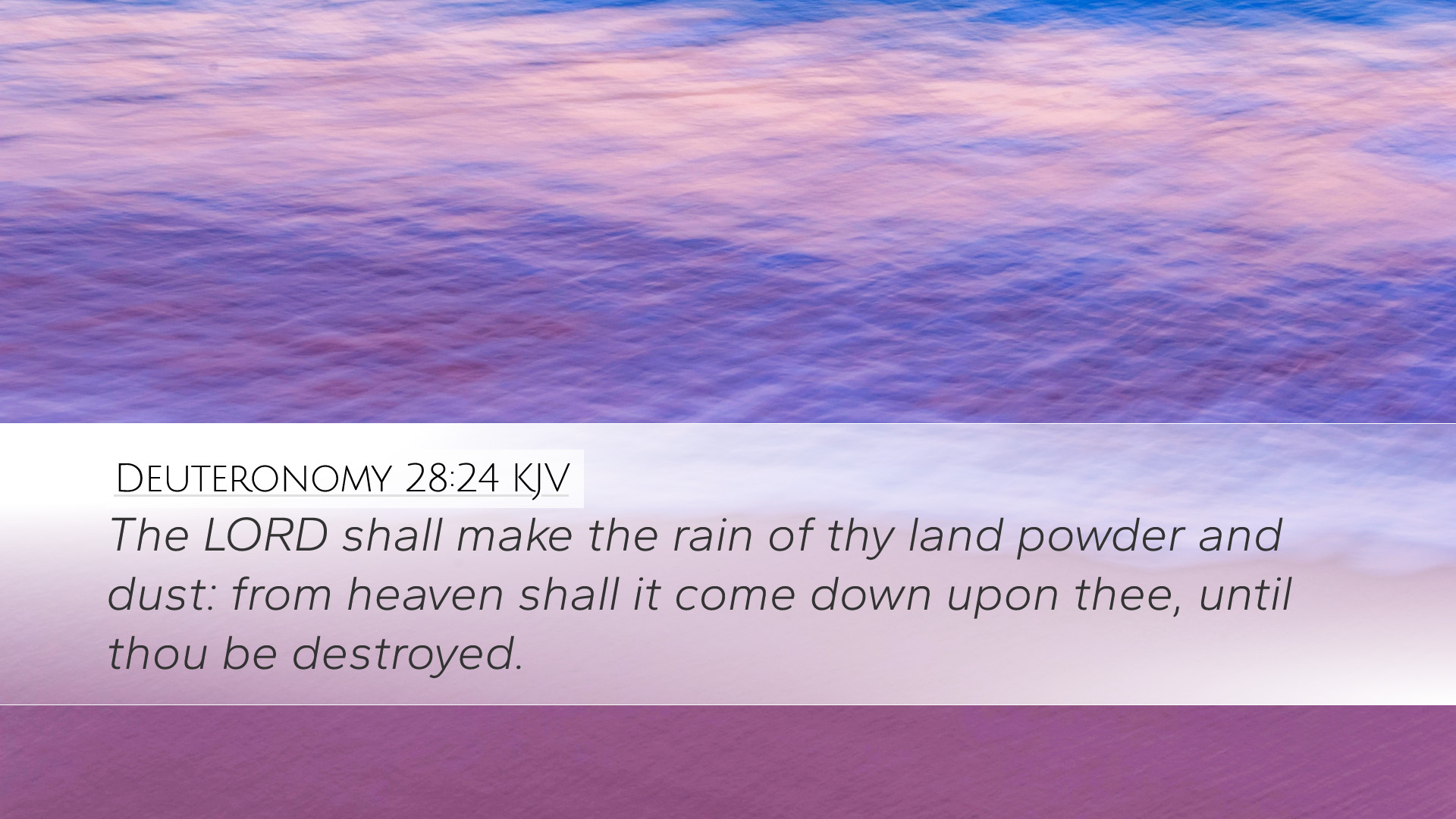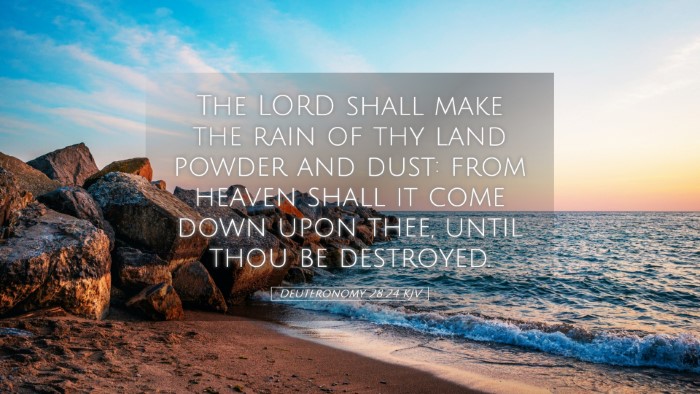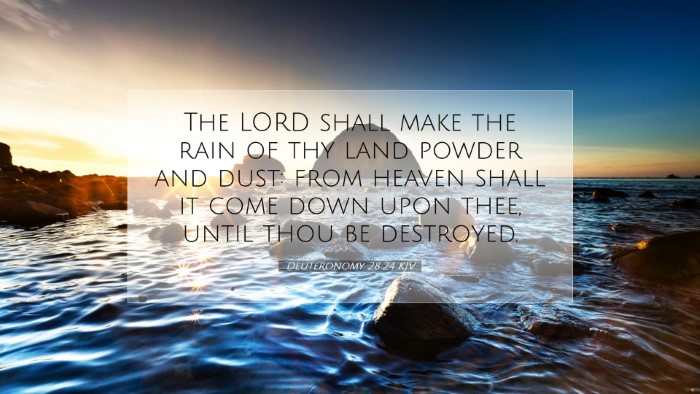Introduction
This verse falls within the context of the blessings and curses outlined in Deuteronomy 28. It serves as a part of the significant covenant between God and Israel, where God delineates the consequences of obedience versus disobedience. The extreme imagery utilized in this verse reflects a profound theological and moral principle: divine judgment through the absence of vital resources.
Theological Significance
The verse captures a powerful metaphor regarding the relationship between human behavior and divine response. The rain symbolizes not only physical sustenance essential for agricultural societies but also the favor of God. Matthew Henry notes that the absence of rain can represent both the withdrawal of God’s grace and the tangible results of sin. This reflects the broader biblical narrative where the land's fertility is contingent upon Israel's faithfulness to the covenant.
Exegesis of the Text
According to Albert Barnes, the phrase "the rain of thy land powder and dust" suggests a divine reversal of natural order. The "rain" that typically nourishes the land becomes a destructive force, indicating that what is designed for blessing can also become a curse when humans turn away from God.
Notably, Adam Clarke emphasizes the dramatic nature of God's judgment through this imagery, noting that it highlights both severity and inevitability. The implications of such judgment extend beyond mere agricultural loss; they reflect a complete disintegration of society's social and economic foundations due to spiritual neglect.
Historical Context
Understanding this verse requires consideration of the historical context surrounding Israel's entrance into the Promised Land. The Israelites were an agrarian society deeply reliant on seasonal rains. Thus, the threat of drought was not simply an inconvenience but a catastrophic possibility that could lead to famine and societal collapse. Both Henry and Clarke suggest that the exile and destruction faced by the Israelites in subsequent history serves as an illustration of the fulfillment of this warning.
Theme of Curses for Disobedience
Deuteronomy 28 employs a clear structure of blessings and curses. This particular verse falls under the curses section, which Matthew Henry outlines as a stern warning. The transition from blessing to curse signifies the covenantal responsibilities of Israel. When they stray from God's commands, they consequently place themselves under His judgment, thus bringing upon themselves dire consequences akin to the destruction described here.
Barnes elaborates that these curses serve not only as punishment but also as a corrective measure intended to lead the Israelites to repentance. The intention behind such stark warnings reflects God's desire for Israel to return to worship and obedience through the recognition of their failures.
Contemporary Application
For modern readers, this verse can evoke reflection on the relationship between spiritual fidelity and physical prosperity. Clarke argues that it reminds believers today of the necessity of aligning their lives with divine principles. Just as rain represents God's provision, so too does spiritual barrenness occur when individuals and communities turn away from God. Such reflections encourage a communal and personal commitment to the teachings of Scripture as essential for spiritual health.
Moreover, this text encourages pastors and theologians to think critically about the socio-economic implications of spiritual neglect today. Relying on the insights from Henry, understanding the interconnectedness of faith and daily life can deepen leaders’ sensitivity to both spiritual and physical needs within their congregations.
Conclusion
In summary, Deuteronomy 28:24 serves as a powerful reminder of the realities of divine judgment in response to disobedience. The vivid imagery of rain turning to dust powerfully conveys the seriousness of Israel's covenant commitments. The insights from Matthew Henry, Albert Barnes, and Adam Clarke collectively encourage believers to seek faithful living that honors God’s commandments, understanding that spiritual health directly influences all aspects of life, including the material and societal.
Through this examination, we see not just a historical warning but a living message urging repentance, obedience, and faithfulness to God, essential for any community aspiring to reflect the holiness and grace of the Creator.


